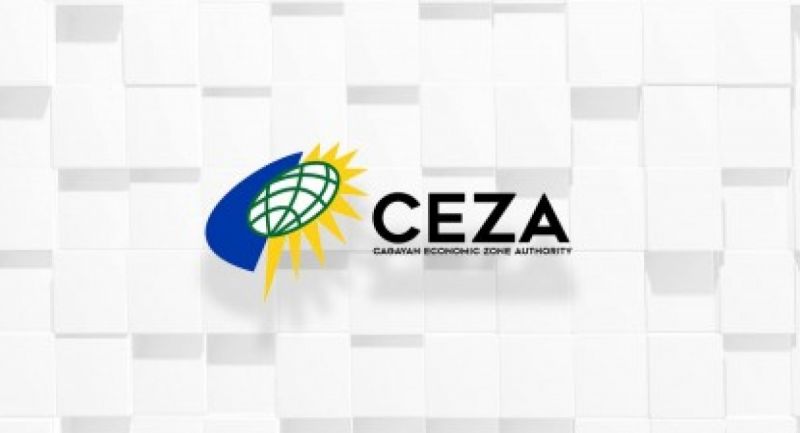CEZA suspends operations of fintech firms

The Cagayan Economic Zone Authority (CEZA) has temporarily suspended effective immediately operations of all the approved principal and regular licensees of financial technology (fintech) firms in Metro Manila pending a thorough investigation on the reported “investment scam” allegedly perpetuated by one of its principal licensees.
This was announced yesterday by Atty. Mike Gerald C. David, CEZA Chief Fintech and Cryptocurrency Business officer, who read the CEZA statement for Secretary Raul Lambino, who was still on an official business trip to China. The temporary suspension of all CEZA fintech firms in Manila was in light of the ongoing investigation of government agencies led by the Philippine National Police, National Bureau of Investigation and the Bureau of Immigration on its Offshore Virtual Currency Exchange (OVCE) Principal Licensee Golden Millennial Quickpay, Inc. Ltd. (GMQ) in Pasig City for allegedly operating an “investment scam.”
“So, no operation of any kind while in Manila, we would rather have it stopped. It is more of due diligence for zero tolerance in Manila until we move them to Cagayan by mid of 2020,” David said.
At present, CEZA has a list of 25 fintech solutions and OVCE principal licensees and 15 regular licensees. Except for GMQ, all the other fintech firms are already 70-80 percent on their way towards full operation, including OVCEs Liannet Technology Ltd. (located in Common Grounds in Pasig) and Asia Premier International Ltd. (in Taguig), which are still on their test operation.
A principal licensee operator pays $360,000 for the total application with four regular licensee under it plus an authorized service provider, which is the lone Filipino firm providing back office support for most of these Chinese principal licensees. A regular licensee pays $85,000.
“We are closely working with the Bureau of Investigation and within our regulatory framework,” he said.
At the same time, David said CEZA has raised the compliance requirements and tighten cyber security rules requiring all these fintech firms to immediately connect to LR DATA, CEZA’s data provider system to ensure the security of these firms.
While CEZA did not exonerate GMQ of wrongdoings as uncovered by the Bureau of Investigation following complaints from China authorities, David said that operating an investment scam was baffling because the license was for GMQ to operate an OVCE, which operates like a stock exchange with several brokers under and companies undertaking online initial coin offering (ICO).
He could only surmise of misguided transactions that misrepresented the exchange or other “elements” from the whole trading system that were able to perpetuate the fraud.
“How can an exchange commit fraud, may be there are other elements outside of the exchange than could commit the fraud, we don’t know,” he said.
CEZA said they were certain that there is no single Filipino citizen who was defrauded by this alleged “investment scam” which uses platforms for offshore operations that allegedly victimized some Chinese citizens.
Likewise, CEZA does not allow its licensees to conduct business activities or offshore virtual currency exchanges in any foreign country like China that prohibits such business activity.
Any violation of these conditions is ground for automatic cancellation of their respective CEZA license and the filing of the appropriate legal action against any licensee found to have been in violation of these standards.
In fact, since the first week of September 2019, CEZA issued directives to all of its licensees for complete reports of legal, regulatory, and ethical compliance practices and standards — specifically to those operating offshore virtual currency exchanges.
In this context, offshore virtual currency exchanges are those which are registered in a jurisdiction other than the Philippines that do not transact with any Filipino citizen or any person located in the Philippines.
These reports are under review at this time and will form basis for further internal investigation should any deficiencies be uncovered. Any and all violations of legal, regulatory, or ethical compliance will be subject to all applicable sanctions under CEZA rules and Philippine law.
As global best practices in financial technology continue to evolve, CEZA — similar to other known global virtual currency jurisdictions such as those in Switzerland, Japan, Singapore, and Malta — remains committed to the constant and diligent re-examination of best global practices which satisfy the needs of the Philippine setting. Enforcement and commercial viability remain the highest priority of CEZA, and if need be, adjustment of regulatory standards and protocols will be made to better enable that enforcement and application of the rules of law and fair commerce.
Calling it part of the birth pains, David was optimistic that CEZA would come out better and benefit from this by being able to institute processes, systems, raised the security level and compliance programs compared to other jurisdictions.
“We are looking at a better life for us because we are the leading jurisdiction in the world that successfully regulated this industry and are able to raise security so we will end up better for our investors. This crackdown will give us room to improve for our investors,” he added.
So far, CEZA has over a thousand granted, mostly Chinese nationals, working visas by CEZA but most of them are the interactive online gaming operators.
https://business.mb.com.ph/2019/09/17/ceza-suspends-operations-of-fintech-firms/
INVESTMENT OPPORTUNITIES
VISITOR COUNTER
 0ki.group/wp-content/plugins/xt-visitor-counter/styles/image/chevy/7.gif' alt='7'>
0ki.group/wp-content/plugins/xt-visitor-counter/styles/image/chevy/7.gif' alt='7'> 0ki.group/wp-content/plugins/xt-visitor-counter/styles/image/chevy/7.gif' alt='7'>.u
0ki.group/wp-content/plugins/xt-visitor-counter/styles/image/chevy/7.gif' alt='7'>.u 0ki.group/wp-content/plugins/xt-visitor-counter/styles/image/chevy/6.gif' alt='6'>41
0ki.group/wp-content/plugins/xt-visitor-counter/styles/image/chevy/6.gif' alt='6'>41 0ki.group/wp-content/plugins/xt-visitor-counter/styles/image/chevy/7.gif' alt='7'>
0ki.group/wp-content/plugins/xt-visitor-counter/styles/image/chevy/7.gif' alt='7'> 0ki.group/wp-content/plugins/xt-visitor-counter/styles/image/chevy/7.gif' alt='7'>.u
0ki.group/wp-content/plugins/xt-visitor-counter/styles/image/chevy/7.gif' alt='7'>.u 0ki.group/wp-content/plugins/xt-visitor-counter/styles/image/chevy/4.gif' alt='4'>
0ki.group/wp-content/plugins/xt-visitor-counter/styles/image/chevy/4.gif' alt='4'> 0ki.group/wp-content/plugins/xt-visitor-counter/styles/image/chevy/7.gif' alt='7'>
0ki.group/wp-content/plugins/xt-visitor-counter/styles/image/chevy/7.gif' alt='7'>
 0ki.group/wp-content/plugins/xt-visitor-counter/styles/image/chevy/7.gif' alt='7'>
0ki.group/wp-content/plugins/xt-visitor-counter/styles/image/chevy/7.gif' alt='7'> 0ki.group/wp-content/plugins/xt-visitor-counter/styles/image/chevy/7.gif' alt='7'>.u
0ki.group/wp-content/plugins/xt-visitor-counter/styles/image/chevy/7.gif' alt='7'>.u 0ki.group/wp-content/plugins/xt-visitor-counter/styles/image/chevy/6.gif' alt='6'>
0ki.group/wp-content/plugins/xt-visitor-counter/styles/image/chevy/6.gif' alt='6'> 0ki.group/wp-content/plugins/xt-visitor-counter/styles/image/chevy/7.gif' alt='7'>
0ki.group/wp-content/plugins/xt-visitor-counter/styles/image/chevy/7.gif' alt='7'> 0ki.group/wp-content/plugins/xt-visitor-counter/styles/image/chevy/7.gif' alt='7'>.u
0ki.group/wp-content/plugins/xt-visitor-counter/styles/image/chevy/7.gif' alt='7'>.u 0ki.group/wp-content/plugins/xt-visitor-counter/styles/image/chevy/6.gif' alt='6'>41
0ki.group/wp-content/plugins/xt-visitor-counter/styles/image/chevy/6.gif' alt='6'>41 0ki.group/wp-content/plugins/xt-visitor-counter/styles/image/chevy/7.gif' alt='7'>
0ki.group/wp-content/plugins/xt-visitor-counter/styles/image/chevy/7.gif' alt='7'> 0ki.group/wp-content/plugins/xt-visitor-counter/styles/image/chevy/7.gif' alt='7'>.u
0ki.group/wp-content/plugins/xt-visitor-counter/styles/image/chevy/7.gif' alt='7'>.u 0ki.group/wp-content/plugins/xt-visitor-counter/styles/image/chevy/4.gif' alt='4'>1
0ki.group/wp-content/plugins/xt-visitor-counter/styles/image/chevy/4.gif' alt='4'>1 0ki.group/wp-content/plugins/xt-visitor-counter/styles/image/chevy/7.gif' alt='7'>
0ki.group/wp-content/plugins/xt-visitor-counter/styles/image/chevy/7.gif' alt='7'> 0ki.group/wp-content/plugins/xt-visitor-counter/styles/image/chevy/7.gif' alt='7'>.u
0ki.group/wp-content/plugins/xt-visitor-counter/styles/image/chevy/7.gif' alt='7'>.u 0ki.group/wp-content/plugins/xt-visitor-counter/styles/image/chevy/2.gif' alt='2'>
0ki.group/wp-content/plugins/xt-visitor-counter/styles/image/chevy/2.gif' alt='2'> 0ki.group/wp-content/plugins/xt-visitor-counter/styles/image/chevy/7.gif' alt='7'>
0ki.group/wp-content/plugins/xt-visitor-counter/styles/image/chevy/7.gif' alt='7'> 0ki.group/wp-content/plugins/xt-visitor-counter/styles/image/chevy/7.gif' alt='7'>.u
0ki.group/wp-content/plugins/xt-visitor-counter/styles/image/chevy/7.gif' alt='7'>.u 0ki.group/wp-content/plugins/xt-visitor-counter/styles/image/chevy/6.gif' alt='6'>
0ki.group/wp-content/plugins/xt-visitor-counter/styles/image/chevy/6.gif' alt='6'> 0ki.group/wp-content/plugins/xt-visitor-counter/styles/image/chevy/7.gif' alt='7'>
0ki.group/wp-content/plugins/xt-visitor-counter/styles/image/chevy/7.gif' alt='7'> 0ki.group/wp-content/plugins/xt-visitor-counter/styles/image/chevy/7.gif' alt='7'>.u
0ki.group/wp-content/plugins/xt-visitor-counter/styles/image/chevy/7.gif' alt='7'>.u 0ki.group/wp-content/plugins/xt-visitor-counter/styles/image/chevy/6.gif' alt='6'>41
0ki.group/wp-content/plugins/xt-visitor-counter/styles/image/chevy/6.gif' alt='6'>41 0ki.group/wp-content/plugins/xt-visitor-counter/styles/image/chevy/7.gif' alt='7'>
0ki.group/wp-content/plugins/xt-visitor-counter/styles/image/chevy/7.gif' alt='7'> 0ki.group/wp-content/plugins/xt-visitor-counter/styles/image/chevy/7.gif' alt='7'>.u
0ki.group/wp-content/plugins/xt-visitor-counter/styles/image/chevy/7.gif' alt='7'>.u 0ki.group/wp-content/plugins/xt-visitor-counter/styles/image/chevy/4.gif' alt='4'>
0ki.group/wp-content/plugins/xt-visitor-counter/styles/image/chevy/4.gif' alt='4'> Users Today : 792
Users Today : 792 Users Yesterday : 640
Users Yesterday : 640 This Month : 2882
This Month : 2882 This Year : 55671
This Year : 55671 Total Users : 478264
Total Users : 478264 Views Today : 2080
Views Today : 2080 Total views : 3833183
Total views : 3833183
REPUBLIC OF THE PHILIPPINES
ABOUT GOVPH
Learn more about the Philippine government, its structure, how government works and the people behind it.



